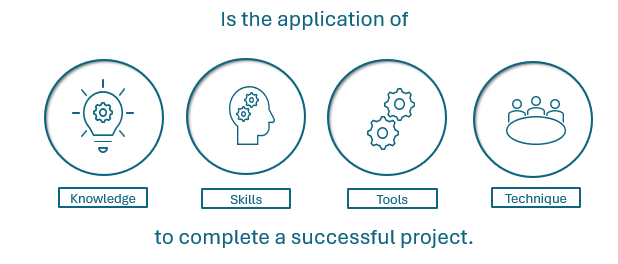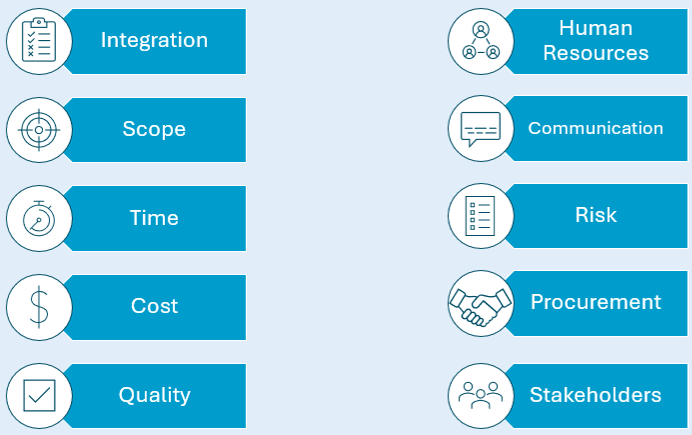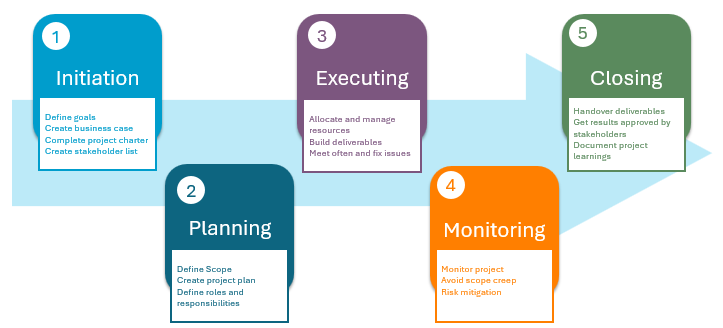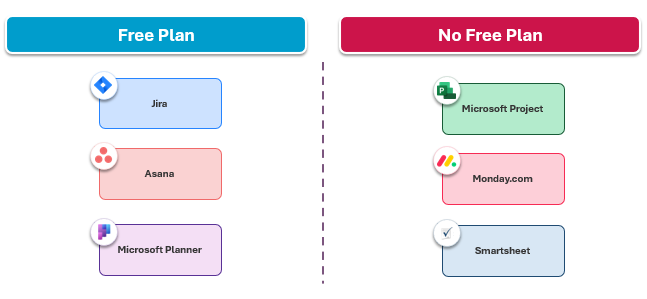Project Management Series: Essentials and Tools 101
Project management is the systematic process of planning, executing, and closing a project, with the goal of achieving specific objectives within a defined scope, time frame, and budget. It involves the coordination of various tasks, resources, and team members to ensure that a project is completed efficiently and successfully.

This post will be focused on Project Management on a very basic level. The post will cover the ten areas of knowledge management, the phases of project management, and some useful tools that can help any project succeed.
Ten Management Knowledge Areas
The ten knowledge management areas in project management play crucial roles in ensuring project success. Collectively, these knowledge areas form a comprehensive framework for effective project management, addressing various aspects from planning and execution to communication and risk mitigation, ultimately contributing to successful project outcomes.
Integration: Enables the coordination of tasks, resources, stakeholders, and variables, ensuring a cohesive project framework and seamless execution.
Scope: Defines and manages project scope, outlining the work to be executed, providing clarity and preventing scope creep.
Time: Involves estimating project duration, creating a schedule, and monitoring progress, ensuring timely project completion.
Cost: Focuses on estimating and managing project costs, developing budgets, and monitoring expenses to keep stakeholders informed.
Quality: Ensures that project deliverables meet predefined quality standards, preventing project failure even when on time and within budget.

Human Resource: Assembles a skilled and content project team, aligning roles within the project structure and tracking performance for efficient progress.
Communications: Provides a well-planned communication strategy to inform and engage the project team and stakeholders, enhancing collaboration.
Risk: Identifies, categorizes, and prioritizes risks, allowing for proactive risk management and the prioritization of necessary actions.
Procurement: Manages external procurement needs, impacting project budget and schedule, with planning beginning by identifying external project requirements.
Stakeholder: Actively manages stakeholders throughout the project lifecycle, understanding their concerns and ensuring project alignment with their needs.
Five Phases of Project Management
In the realm of project management, the journey from concept to completion is guided by five fundamental phases. Commencing with the Initiation phase, project managers define the project’s purpose, scope, and objectives, obtaining formal authorization to proceed. The Planning phase then unfolds, wherein a comprehensive project plan is crafted, delineating tasks, timelines, and resource allocations. As the project transitions to the Execution phase, the plan is set into motion, and deliverables begin to take shape. The Monitoring phase follows, allowing for the continuous assessment of project performance, risk management, and the implementation of corrective measures. Ultimately, the Closing phase marks the formal conclusion of the project, ensuring stakeholder satisfaction, documenting lessons learned, and evaluating the overall success of the endeavor. This structured approach, known as the project life cycle, serves as a roadmap, facilitating effective project management and successful outcomes.

Project Management Tools

Microsoft Project, Microsoft Planner, Jira, Monday.com, Asana, and Smartsheet are powerful project management tools, each offering unique features to enhance collaboration, organization, and overall project efficiency.
In summary, these project management tools offer diverse features catering to different project needs. From detailed project planning and tracking in Microsoft Project to agile development support in Jira, and user-friendly task management in tools like Asana and Monday.com, project managers and teams can choose the tool that best aligns with their project requirements, fostering efficiency, collaboration, and successful project outcomes.
Find out more about Project Management in our training track at Knack Training and utilize this free download with 10 management terms everyone should know. (Download here)